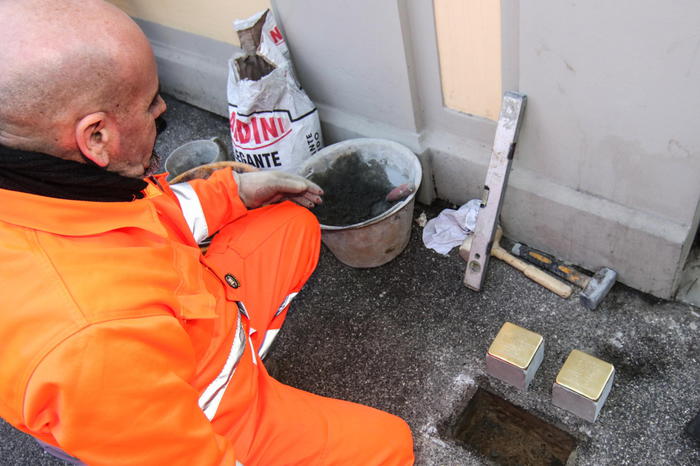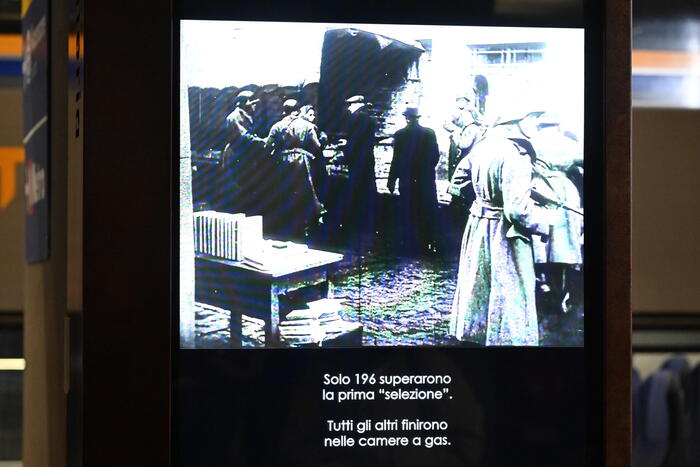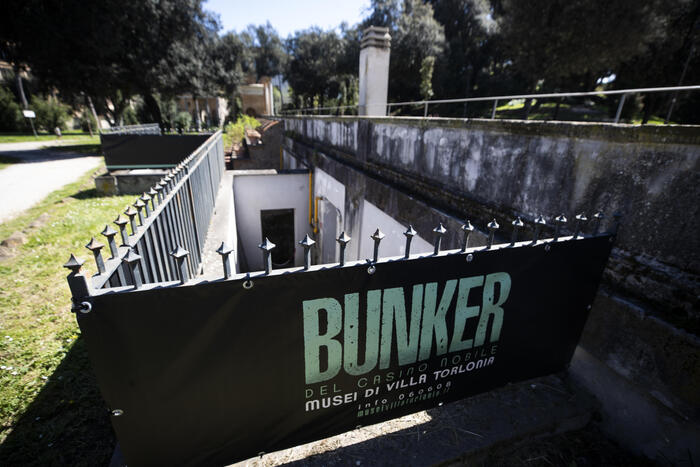(ANSA) - ROME, JANUARY 16 - After eleven editions in which 336 stumbling blocks were placed, for the twelfth time, on Tuesday 19 January and Wednesday 20 January 2021 21 'Stolpersteine' will be installed in Rome in memory of racial and political deportees.
This year, the organizers of the Arteinmemoria initiative announced under the high patronage of the President of the Republic, the appointment will take place in compliance with the rules established by the last Dpcm, for which people present at the installations will have the obligation to wear masks and to maintain due distances.
Curated by Adachiara Zevi, the project avails itself of a scientific committee composed of Anna Maria Casavola, AnnabellaGioia, Elisa Guida, Antonio Parisella, Liliana Picciotto, Micaela Procaccia and Michele Sarfatti;
and an organizing committee composed of Bice Migliau and Sandra Terracina.
Gunter Demnig's idea dates back to 1993 when the artist was invited to Cologne for an installation on the deportation of Roma and Sinti citizens.
He chooses the sidewalk facing the house where the deportees lived and installs as many "stumbling blocks", cobblestones of the common type and standard size (10x10 cm.).
Only the upper surface distinguishes them, as it is made of shiny brass.
On this are engraved: name and surname, age, date and place of deportation and, when known, the date of death.
The first Stolpersteine were installed in Cologne in 1995;
since then this extraordinary map of Europeasi memory has extended to include over 50,000 stones.
Among the stumbling blocks this year the one dedicated to the memory of Amelia Coen (Via Caserta, 4) an elderly lady taken away from her home during the roundup of the Jewish Romans on October 16 as Grazia Ajò, Mario and Emma Di Veroli (Via Portico d ' Octavia, 9) the latter a two-year-old girl murdered on the day of her arrival in Auschwitz with her mother, who, having warned of her family's arrest, had added her by getting on the deportees' truck.
(HANDLE).














/cloudfront-eu-central-1.images.arcpublishing.com/prisa/IGZ7GOCXZ5GUPAQ2HWGK6Z76BU.jpg)